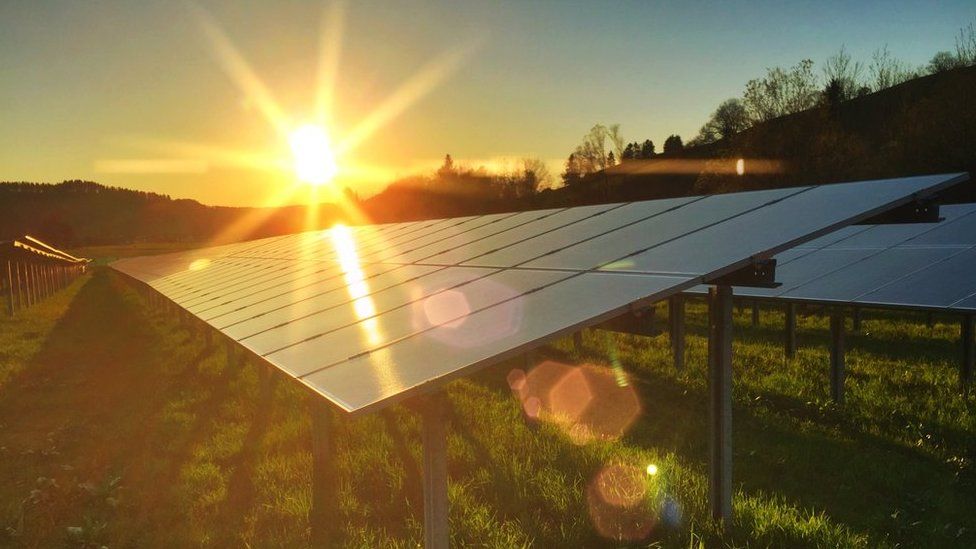ARTICLE AD BOX
By Tom Singleton
BBC News Technology Team
 Image source, Getty Images
Image source, Getty Images
The UK's heatwave is helping to generate large amounts of solar power - but experts say it's actually too hot for the highest levels of electricity generation.
Trade body Solar Energy UK says the last few days have seen about 10% of Britain's electricity come from solar.
But its chief executive Chris Hewett says: "The heat itself brings down the efficiency of solar panels slightly.
"So don't expect to see records set."
This week has seen the UK record its highest ever day and nigh temperatures, with heat warnings being put in place for much of the country.
Balance of heat and light
But for solar power generation, the amount of sunshine - also referred to as irradiance - is more important than the amount of heat,
"It's because of this balance between irradiance and temperature that the record for peak half-hourly generation is always in April or May, because that's when we get sunny but relatively cool weather," says Jamie Taylor, a senior data scientist at Sheffield University.
"The amount of generation coming from solar has been very high over the last week. But I think it's unlikely a new record will be set in terms of power generation."
Mr Taylor says the record for total daily energy generation from solar in the UK was 80.6 gigawatt hours (GWh) on 29 May 2020.
It's thought around 64 GWh was generated by solar systems on Monday of this week.
A portion of that came from panels installed on homes - and, for the people who own them, the heatwave has provided an opportunity to make a small profit.
Terence Eden has solar panels and battery storage at his house in south London, and has been generating more power than he uses, selling the remainder back to the grid.
"For us, the energy meter has been spinning backwards, effectively", he says.
"On a day like yesterday we generated 20 kilowatt hours of power, used eight, stored two, and sold ten back to the grid."
Mr Eden estimates that earned him around £1.70.
He says his experience is that his solar panels work best around the summer solstice, when there is maximum daylight, but says that even over winter they have been useful.
He says the only time they don't work is when they're "covered in snow".

 2 years ago
50
2 years ago
50








 English (US) ·
English (US) ·